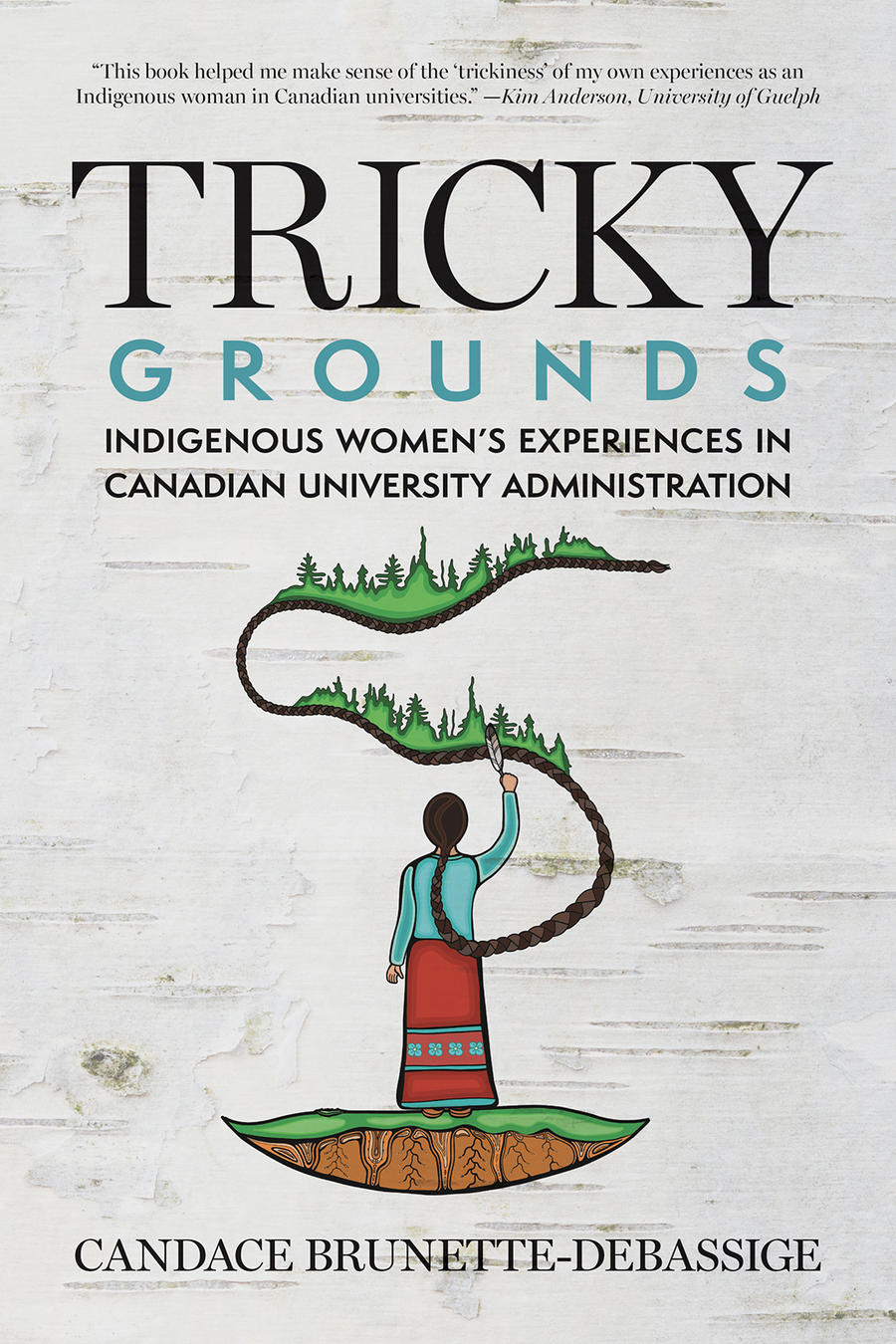About the author | About the book | Author's notes
"The research was born out of my own experiences leading Indigenous strategic planning and establishing a university-wide Indigenous Office and senior leadership role at my previous university."
About the author

Candace Brunette-Debassige is a Mushkego Cree iskwew registered with Petabeck First Nation in Treaty 9 Territory with Cree and French settler lineage. Raised in small town northern Ontario, Candace is a professor at Laurentian University in Indigenous Relations. Prior to joining Laurentian, Candace worked at Western University where she has served in various leadership roles including Acting Vice Provost /Associate Vice President (Indigenous Initiative), Special Advisor to the Provost (Indigenous), and Director of Indigenous Services at Western University where she actively co-led the development of Western’s first Indigenous Strategic Plan. Candace is the author of Tricky Grounds, a book focusing on Indigenous women’s powerful leadership roles in advancing reconciliation and Indigenization movements in postsecondary settings. Tricky Grounds is based on her doctoral dissertation which was awarded the 2021 George L. Geis dissertation of the year award by the Canadian Society for Studies in Higher Education.
About the book
 Breaks the deafening silence of Indigenous women’s voices in academic leadership positions.
Breaks the deafening silence of Indigenous women’s voices in academic leadership positions.
Since the 2015 release of the report on the Truth and Reconciliation Commission of Canada, new Indigenous policies have been enacted in universities and a variety of interconnecting Indigenous senior administrative roles have been created. Many of these newly created roles have been filled by Indigenous women. But what does it mean for Indigenous women to be recruited to Indigenize Western institutions that have not undergone introspective, structural change?
Informed by her own experiences and the stories of other Indigenous women working in senior administrative roles in Canadian universities, Candace Brunette-Debassige explores the triple-binding position Indigenous women often find themselves trapped in when trying to implement reconciliation in institutions that remain colonial, Eurocentric, and male-dominated. The author considers too the gendered, emotional labour Indigenous women are tasked with when universities rush to Indigenize without the necessary preparatory work of decolonization.
Drawing on an Indigenous feminist decolonial theoretical lens and positioning Indigenous story as theory, Brunette-Debassige illustrates how Indigenous women can and do preserve and enact their agency through resistance, and help lead deeper transformative changes in Canadian universities. Ultimately, her work provides a model for how reconciliation and Indigenization can be done at an institutional level.
This book shares the embodied experiences of Indigenous women working in formal leadership roles in Canadian universities in a reconciliation era. The research was born out of my own experiences leading Indigenous strategic planning and establishing a university-wide Indigenous Office and senior leadership role at my previous university. The book's central findings focus not only on my own experiences, but the shared experiences of eleven other Indigenous women I visited with over the course of two years. Using an Indigenous storying approach, the book gives voice to the deafening silence of Indigenous women's voices showing how they navigate the academic tightropes, and often feel trapped in impossible binds - impossibilities tied to the ongoing colonial and gendered nature of the academy, tied to the male dominated leadership profession they occupy, and tied to the dangerous borderland they navigate in between Euro-Western and Indigenous societies and ways of knowing.
This book appeals to many people working toward reconciliation in public institutions including policy makers, educators, leaders and students as it speaks to the complex processes of reconciliation, Indigenization and decolonization, which are both timely and relevant.
